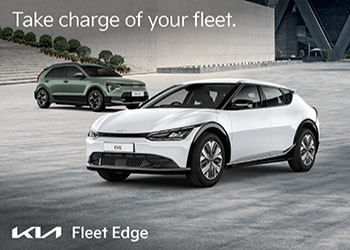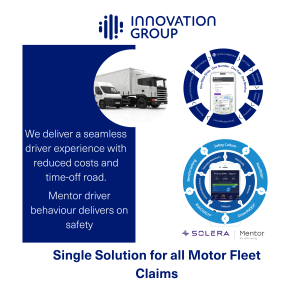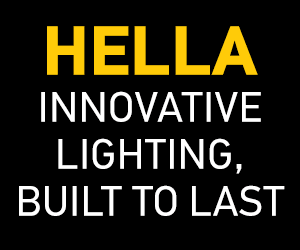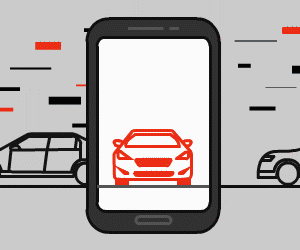Featuring the latest fleet management news, views and events from around the globe.
USA – Uber Agreement

Ride-sharing giant Uber has entered into an ambitious new agreement with Volvo, as the company looks towards the future of autonomous self-driving vehicles.
The reported $1.4 billion partnership would see Uber purchase 24,000 of Volvo’s XC90 SUV models between 2019 and 2021 for testing.
The XC90 base models come loaded with sensors and autonomous computing capabilities, but the vehicles will be configured for Uber to also add their own automation features.
Jeff Miller, Uber’s head of automotive alliances, said: “Our goal was from day one to make investments into a vehicle that could be manufactured at scale.
“It only becomes a commercial business when you can remove that vehicle operator from the equation.”
Uber has already begun testing the XC90 in Arizona, San Francisco and Pittsburgh in a bid to refine and improve the autonomous software for a future release.
Mexico – New Lease of Life

Vehicles leasing within Mexico has grown rapidly in the last 12 months, according to a new local vehicle study into the nation’s commercial fleet habits.
The study from leasing association AMAV found that the overall cumulative leased fleet size grew 19.6% within 2016 to almost 125,000 units. That figures soared from the 104,400 units that were leased the previous year.
The growth in figures is largely a result of the nation’s relaxed reporting regulations on company cars. Unlike Australian businesses, Mexican employees are not typically required to report personal use of commercial fleet for personal tax, further adding to the incentives of owning a commercial vehicle.
Given the significant import and export taxes that are entering the Mexican market in the wake of record vehicle production, the incentives of leasing rather than purchasing fleet vehicles continue to rise.
UK – Royal Rover

Jaguar Land Rover were delighted to welcome the Duke and Duchess of Cambridge to its Solihull manufacturing plant in recent days.
Price William and Princess Kate’s visit allowed the royals to get a first-hand experience of the $4 billion investment into the site, which has seen production and employment double since 2008.
As part of their tour of the final assembly line The Duke and Duchess saw some final testing of the Jaguar F-PACE and Range Rover Velar – two of the latest models to be introduced at the plant. Jaguar Land Rover was also able to showcase their plans for an electric future, as the manufacturer strives to reach its fully electrified target from 2020 onwards.
Jaguar Land Rover CEO, Dr Ralf Speth said: “Showcasing the Solihull manufacturing plant to The Duke and Duchess of Cambridge was an honour.”
“We are a proud British company with a passionate workforce and it was a privilege for everyone to be part of this very special visit”.
France – Carbon City

Paris is aiming to become entirely carbon neutral by 2050, as part of a new comprehensive environmental plan it hopes to adopt early next year.
By 2030, the French capital aims to reduce its local emissions of greenhouse gases by 50% compared to 2004. Long term the objective is to move to 100% renewable and recovery energy, of which 20% would be produced locally.
“This climate plan should take us towards a carbon neutral France. This is a real and meaningful step forward,” World Wildlife Fund’s French Director Pascal Canfin said.
The city of Paris itself is leading by example, having committed to 16% fewer vehicles in its fleet between 2008 and 2019. The last diesel-powered car purchased in that fleet was in 2015, as the nation strives to reduce its overall carbon footprint.
China – Volkswagen Voyage

German car manufacturer Volkswagen is setting its sights on China, as it plots an ambitious bid to launch almost 40 different locally produced vehicles in the region by 2025.
With China currently setting the pace for future e-mobility and telematics technology, the manufacturer is keen to be at the forefront of any advancements. Volkswagen Group China President and CEO Jochem Heizmann. said the manufacturer will invest more than 10 billion euros into the e-mobility sector between now and 2025.
Volkswagen plans to deliver 400,000 new energy vehicles to customers in 2020 and 1.5 million by 2025 – the majority of which it hopes will be full electric models.
The news follows partnerships Volkswagen made with Chinese companies earlier in the year in the areas of artificial intelligence, new energy vehicle charging and premium car rental services.
Japan – Hydrogen Plan

Toyota is still banking on the future of hydrogen fuel cells, despite the fact it loses money on each car that it produces.
The manufacturer sells about 10 million vehicles annually, but has only sold around 4,000 of their Mirai fuel cell vehicles since late 2014. This already represents a significant challenge for Toyota with the company hoping to sell 30,000 fuel-cell vehicles per year by 2020.
While the rest of the world is getting excited about electric vehicles technology, Toyota believes hydrogen is an ideal fuel for a future low-carbon society. And they may have a point.
Electric vehicles are often plagued with range anxiety and slow charging times, but a hydrogen vehicle can travel further and fuel just as quickly as a regular vehicle. Perhaps the only limit for the Japanese at this stage is the lack of infrastructure – the country has 28,000 EV charging stations but only 92 hydrogen fueling stations!











